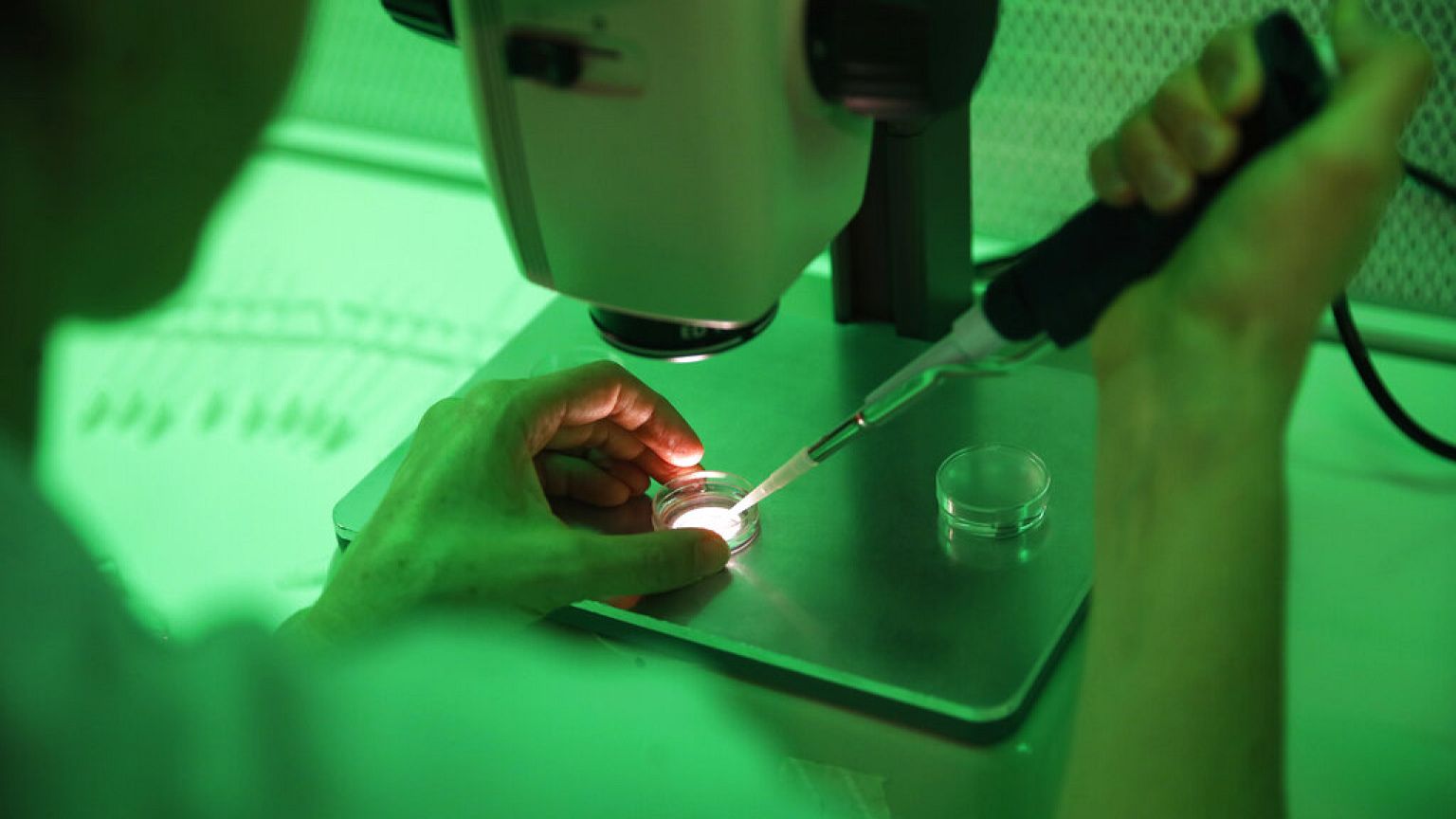Health
Experimental Gene Therapy Restores Vision for Italian Patient

A groundbreaking experimental gene therapy has enabled a 38-year-old man in Italy to regain his sight after suffering from a rare genetic eye disorder known as Usher syndrome type 1b. This innovative treatment, conducted at the University of Campania “Luigi Vanvitelli” in July 2024, marks a significant milestone in ophthalmology, representing the first successful application of this type of therapy for vision restoration.
Usher syndrome type 1b is characterized by profound deafness from birth and a progressive loss of vision, ultimately leading to blindness. Prior to the surgery, the patient had a visual capacity of less than 10%, perceiving the world as if looking through a keyhole. Following the treatment, he has shown remarkable recovery, with doctors confirming that he can now see both near and far, even in low-light conditions.
During a press conference, the patient expressed his gratitude, stating, “Before, everything was blurry, indistinct. Now I can go out at night alone, recognize colleagues, read subtitles on TV from afar, and see the aisles of the warehouse where I work without stumbling.” He added, “It’s not just seeing better, it’s starting to live.”
Innovative Procedure and Its Impact
The surgery involved a novel approach where two separate viral vectors were injected under the retina, each containing half of the gene necessary to produce the protein lacking in Usher 1b patients. According to Francesca Simonelli, director of the ophthalmology clinic at Vanvitelli University, the procedure is performed under general anesthesia and allows for rapid recovery. “After a few days, an improvement is noticeable. At two weeks, the first patient could see better, and at one month, he was able to find his way even in the dark,” she explained.
One year post-surgery, the patient’s vision has been fully restored, showcasing the therapy’s effectiveness. Following this initial success, seven additional patients underwent the same procedure from October 2024 to April 2025, with no serious side effects reported. The preliminary results have been promising, paving the way for a second experimental phase that will include seven more participants.
As the clinical trials continue, the potential impact of this gene therapy could extend beyond the initial group of patients. If subsequent phases prove successful, this treatment may offer a new hope for many who suffer from genetic eye disorders, fundamentally altering their quality of life.
This pioneering research was developed by scientists at the Telethon Institute of Genetics and Medicine (TIGEM) in Pozzuoli, further underscoring Italy’s growing reputation as a hub for cutting-edge medical advancements. The ongoing work in this field reflects a commitment to improving patient outcomes through innovative therapies that leverage genetic understanding and technological advancements.
-

 Top Stories3 months ago
Top Stories3 months agoTributes Surge for 9-Year-Old Leon Briody After Cancer Battle
-

 Entertainment4 months ago
Entertainment4 months agoAimee Osbourne Joins Family for Emotional Tribute to Ozzy
-

 Politics4 months ago
Politics4 months agoDanny Healy-Rae Considers Complaint After Altercation with Garda
-

 Top Stories4 months ago
Top Stories4 months agoIreland Enjoys Summer Heat as Hurricane Erin Approaches Atlantic
-

 World5 months ago
World5 months agoHawaii Commemorates 80 Years Since Hiroshima Bombing with Ceremony
-

 Top Stories3 months ago
Top Stories3 months agoNewcastle West Woman Patricia Foley Found Safe After Urgent Search
-

 Top Stories5 months ago
Top Stories5 months agoFianna Fáil TDs Urgently Consider Maire Geoghegan-Quinn for Presidency
-

 World5 months ago
World5 months agoCouple Convicted of Murdering Two-Year-Old Grandson in Wales
-

 World5 months ago
World5 months agoGaza Aid Distribution Tragedy: 20 Killed Amid Ongoing Violence
-

 World5 months ago
World5 months agoAristocrat Constance Marten and Partner Convicted of Infant Murder
-

 Top Stories4 months ago
Top Stories4 months agoClimbing Errigal: A Must-Do Summer Adventure in Donegal
-

 Top Stories4 months ago
Top Stories4 months agoHike Donegal’s Errigal Mountain NOW for Unforgettable Summer Views









